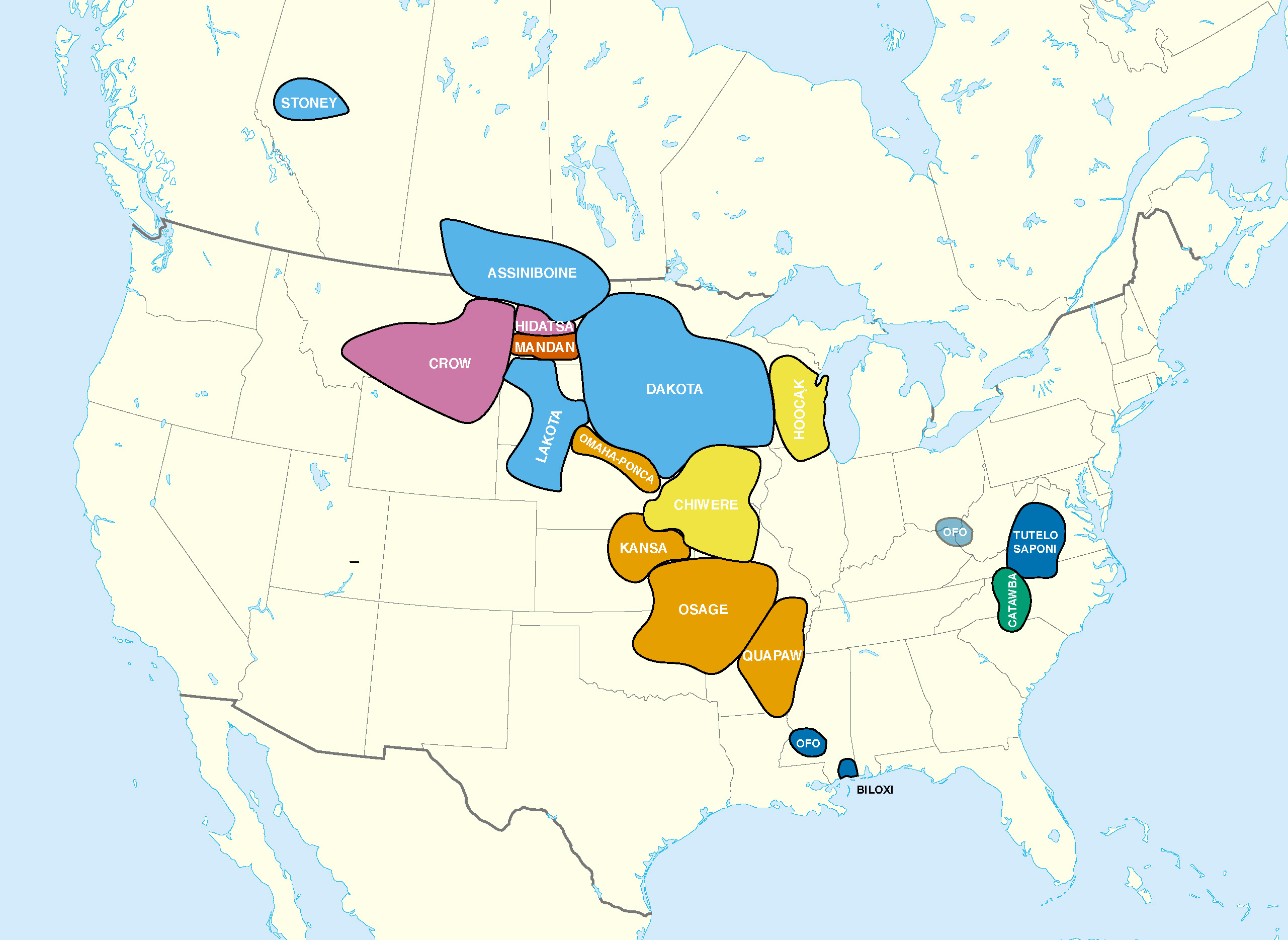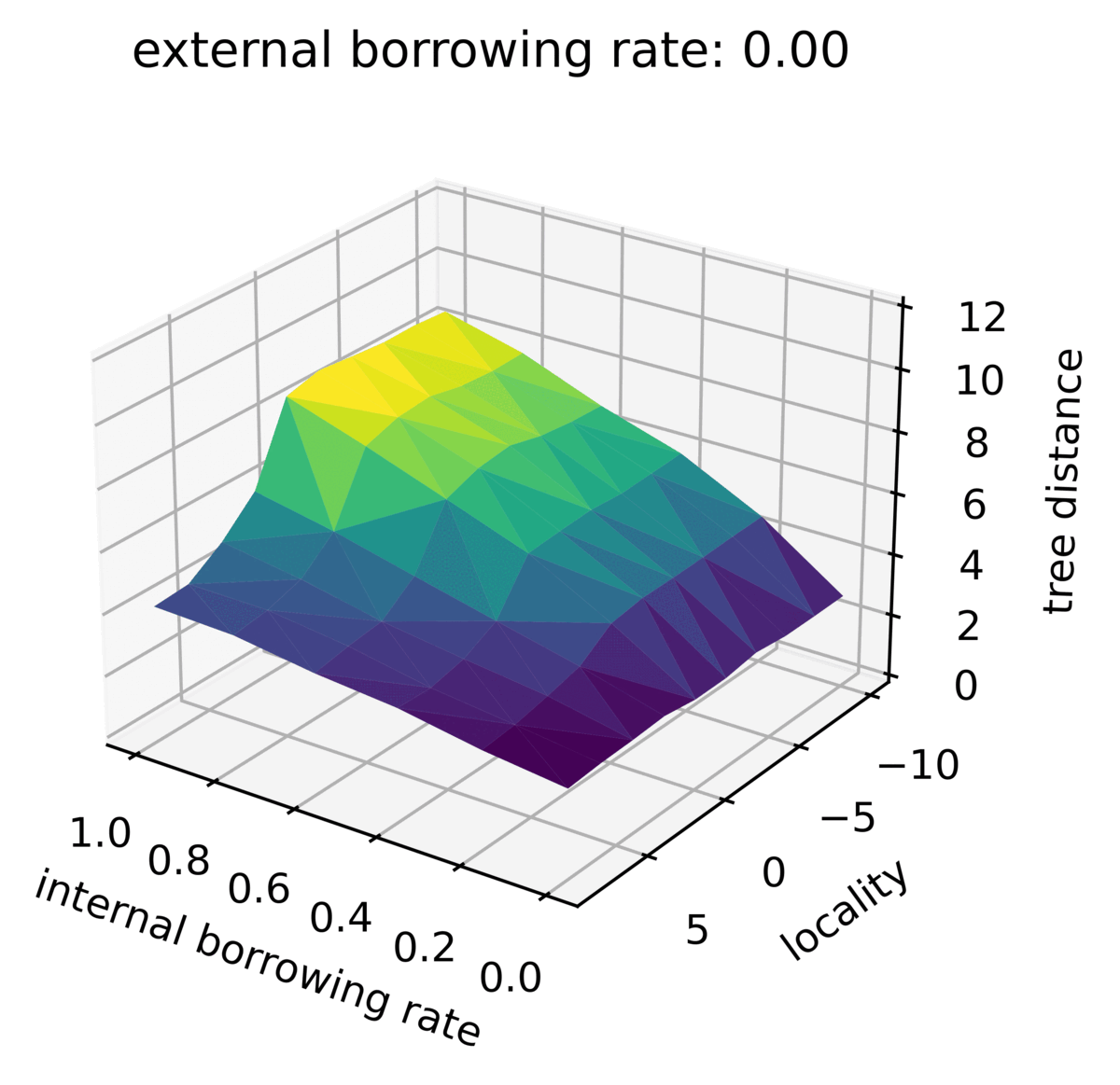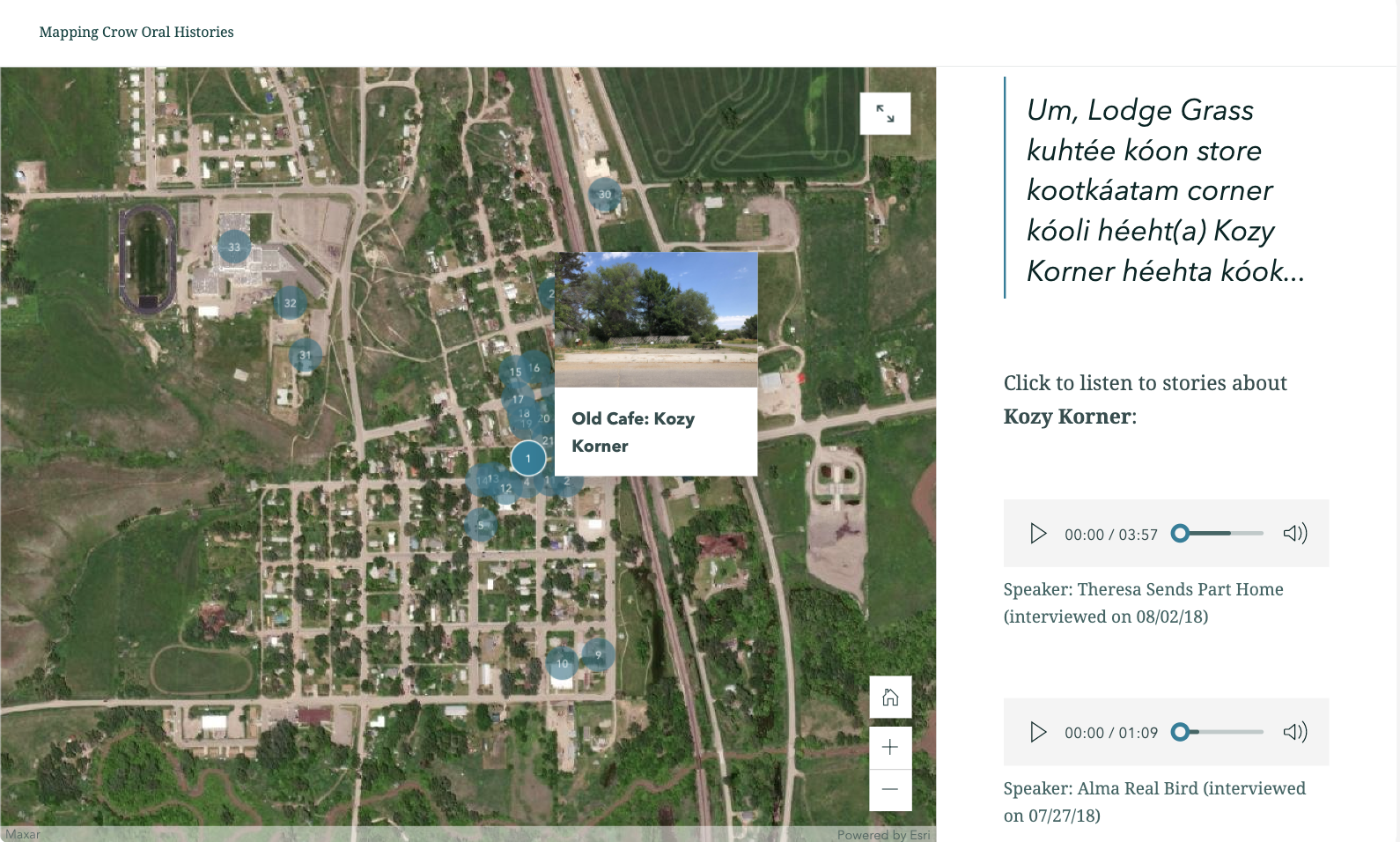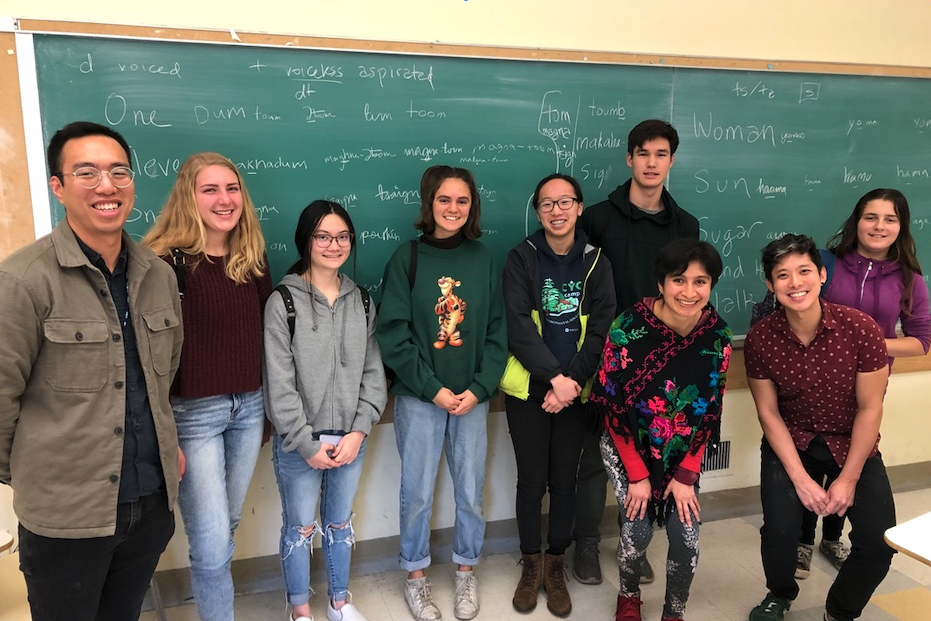Edwin Ko
Edwin Ko
Lecturer and Associate Research Scientist, Yale University

Welcome!
I am a Lecturer and Associate Research Scientist in the Linguistics Department at Yale University. I have an areal focus on North American languages, especially Crow (Siouan; ISO: cro) and other languages in the Siouan family. My research is broadly in (computational) historical linguistics, language documentation, and language revitalization.
edwin.ko@yale.edu
New Haven, CT
Current Projects
Inferring the linguistic phylogeny of the Siouan language family Historical linguistics
My primary research seeks to investigate the linguistic past of the Siouan language family by employing Bayesian phylogenetic methods. How well do these methods recover the uncontroversial subgroups and what light do they shed on the more controversial branching? How do the results align with knowledge from multiple sources about the origin and spread of the Siouan language family? I investigate these questions through the use of different types of data, coding schemes, and evolutionary models, and examine how the results of the analysis differ based on the choice of data and model. Thus, this project explores the methodological consequences of the different decisions that enter into computational phylolinguistic studies and also builds on historical-comparative research on the Siouan language family.

Image: Approximation of the geographical distribution of the Siouan languages.
The effects of horizontal transmission in linguistic phylogenies Historical linguistics
In collaboration with John Huelsenbeck, I have been conducting simulation studies, which builds on the work by Greenhill et al. 2009, to explore the effects of borrowing between languages. In particular, we investigate the effects of different evolutionary models (both vertical and horizontal), borrowing from 'ghost lineages', borrowability (i.e. resistance to borrowing), and among other factors that have yet to be considered. With these simulation studies, we hope to gain a deeper understanding of the potential effects of borrowing in inferring linguistic phylogeny using Bayesian phylogenetic methods.

Image: External and internal borrowing effects.
Reconstituting "missing" words using deep learning Language revitalization Historical linguistics
Working with Corey Roberts, a Tutelo-Saponi learner-teacher and PhD student at the University of Arizona, we combinie deep learning and the traditional tools of historical linguistics to reconstitute "missing words" in the Tutelo language, a dormant Siouan language with limited documentation. We build off of the work by previous scholars and incorporate the power of sound correspondences to increase the reliability of the predictions. This work hopes to contribute to language revitalization and reclamation scenarios in which there are only a handful of attested words of a dormant language without any known speakers but still many resources in other related languages.
Documentation of the Crow language Language documentation Discourse
In addition to investigating areas of Crow grammar that have received little or no attention, I have been collecting discursive practices in Crow such as oral histories. This corpus includes commentary about changes on the reservation and in the way of life, the current language situation, Crow identity and culture, among other topics. Another important aspect of this project involves documenting stories with specific association to places or buildings no longer in use today. These stories therefore encapsulate a unique repository of historical and cultural knowledge. The recordings are housed in the Survey of California and Other Indian Languages.

Image: Mapping Crow Oral Histories project.
Past Projects
Attitudes and ideologies towards texts in language revitalization Language revitalization Discourse Language documentation
In many indigenous language revitalization contexts, there are many uncertainties in how texts can and should be used. Drawing from data collected through an international online survey and follow-up interviews, I examine attitudes towards texts and the factors that infuence them. I also consider prospects and challenges of using texts and how they are reflective of ideologies about language. I suggest that the varied and creative ways in which texts have been used in language revitalization offer multiple pathways for language revitalization practitioners to enact change and construct meaningful cultures for themselves.
Co-speech gesture and semantic fieldwork Language documentation Discourse
This project proposes that co-speech gesture constitutes a type of semantic data that can be used when investigating particular semantic phenomena. Drawing from video recordings of an elicitation session exploring aspect in Crow, Schuyler Laparle and I employ discourse and gesture analysis to examine the discursive patterns of the linguist and the consultant. We find that during semantic elicitation, consultants sometimes employ gestures as an embodied resource to concretize and convey abstract grammatical notions, such as aspect. As such, documenting and analyzing gestures that are co-produced with speech can be a useful addition to a semantic fieldworker's toolkit.
On the origins of multiple exponence in Crow Morphology Historical linguistics
Multiple exponence (ME) is a phenomenon whereby exponents that encode the same information are multiply exponed within a single word. I explain that one origin of ME in Crow is the grammaticalization of the inflectional future from the motion verb 'arrive there', which brings with it its own agreement prefixes. ME was then extended to compound modals containing the inflectional future and finally to a morphologically unrelated modal -- a distinct case of ME begetting additional ME. Thus, this study contributes to the broader understanding of the diachronic pathways to ME.
Anti-locality in Crow applicatives of unaccusativesMorphosyntax
In generative syntax, anti-locality effects, which ban "too close" movement, have been reported for A'-movement. More recently, anti-locality effects have also been demonstrated for A-movement. I argue that anti-locality involving A-movement can be observed in Crow particularly between plain unaccusatives where the underlying theme remains in-situ and applicatives of unaccusatives where the theme undergoes A-movement. I claim that movement in the latter construction occurs due to the presence of an intervening projection (ApplP) thereby obviating the effects of anti-locality.
Youth empowerment in dormant language reclamation effortsLanguage revitalization Discourse
Drawing from video- and audio-recorded interactions at the dormant language revitalization camps of Northern Pomo, I examine the discursive strategies caregivers use while collaborating with youths in joint language-learning activities. By employing discourse analytic techniques, I find that youths often position themselves in the more powerful role of teacher while positioning caregivers in the role of student. The key insight is that caregivers, who act as agents of primary socialization, acquiesce in the roles that are imposed on them by surrendering some of their own authority to create a space that helps to promote youth empowerment.
Papers
Peer-reviewed papers
3. On the origins of multiple exponence in Crow. 2023. Diachronica, 40(1), 73–110. Paper
2. Shifting teacher/learner roles in language reclamation efforts relying on digital technology. 2022. Language Documentation & Conservation, 16, 259–289. Paper
1. *Co-speech gesture and semantic fieldwork: A case study of aspectuals in Crow. 2022. With Schuyler Laparle, Semantic Fieldwork Methods, 4(3), 1–25. Paper
*First author
Proceedings papers
4. Feeding agreement: Anti-locality in Crow applicatives of unaccusatives. 2021. In Alessa, Farinella & Angelica Hill (eds.), Proceedings of the 51st Meeting of the North East Linguistic Society, vol. 2, 39-52. Paper
3. Unaccusativity in Crow. 2020. In Ryan Kasak, Samiron Dutta & Justin McBride (eds.), Proceedings of the 39th Annual Siouan and Caddoan Languages Conference, 83-101. Link
2. Diagnosing Impersonal “Passives” in Unangam Tunuu (Aleut). 2017. In Julia Nee, Margaret Cychosz, Dmetri Hayes, Tyler Lau,& Emily Remirez (eds.), Proceedings of the 43rd Annual Meeting of the Berkeley Linguistics Society, 461-482. Berkeley, CA: University of California, Berkeley. Link
1. The role of geography in syntactic variation: A corpus-based analysis of adverb position across varieties of English worldwide. 2016. University of Pennsylvania Working Papers in Linguistics: Vol. 22: Iss. 2, Article 13. Philadelphia, PA: University of Pennsylvania. Link
Works in progress
3. External borrowing, ghost lineages, and resistance rates: Simulating borrowing on linguistic phylogenies. In preparation.
2. "The essence of the language is in texts": Attitudes and ideologies toward texts in language revitalization. Comments welcome! Draft
1. On the semantics of modal auxiliaries in Crow. Comments welcome! Draft
Other manuscripts
6. The ancient history of the Siouan-Catawban language family: Synthesizing archival and computational approaches. Nov. 14, 2022. American Philosophical Society Blog. Link
5. A Finding Aid for Siouan-Catawban Language Materials at the American Philosophical Society. 2022. Unpublished manuscript, University of California, Berkeley. Paper
4. Blair Rudes Papers (NAA.2009-1): A Finding Aid.. 2022. Unpublished manuscript, University of California, Berkeley. Paper
3. Robert Rankin Papers (NAA.2014-16): A Finding Aid.. 2022. Unpublished manuscript, University of California, Berkeley. Paper
2. Keeping alive our Indigenous cultures on Mother Language Day. With Tessa Scott and Jesús Nazario. Feb. 21, 2022. Berkeley News. Link
1. Digital technology and language revitalization. 2021. Unpublished manuscript, University of California, Berkeley. Paper

Image: Co-author Turnip writing up a storm.
Presentations
For the full list of presentations, please refer to my CV.
10. Internal and external borrowing and their effects on linguistic phylogenies: A simulation study. With John Huelsenbeck. Paper to be presented at the Linguistic Society of America 2023 Annual Meeting, Denver, CO, Jan. 2022.
9. A Bayesian phylogenetic classification of the Siouan family using typological traits. Paper presented at the 25th International Conference of Historical Linguistics, Oxford, UK, Aug. 4, 2022. Slides
8. The life cycle of suppletion in Crow. Paper presented at the 42nd Annual Siouan and Caddoan Languages Conference, Charlottesville, VA, May 29, 2022. Handout
7. A preliminary study of pre-aspirates in Crow. With Brady Dailey, Emma Kuykendall, and Dennis Phan. Paper presented at the 42nd Annual Siouan and Caddoan Languages Conference, Charlottesville, VA, May 28, 2022.
6. A Bayesian phylogenetic study of the Siouan language family using typological data. Paper presented at the 41st Annual Siouan and Caddoan Languages Conference, Berkeley, CA, May 22, 2021. Slides
5. "The essence of the language is in texts": Attitudes towards and uses of texts in language revitalization. Paper presented at the Symposium on American Indian Languages, Tucson, AZ, Apr. 9, 2021. Slides
4. Feeding agreement: Anti-locality in Crow applicatives of unaccusatives. Paper presented at 51th Meeting of the North East Linguistic Society, Montreal, Canada, Nov. 7, 2020. Handout Talk
3. On the origins of multiple exponence in Crow. Paper presentation at 40th Annual Siouan and Caddoan Languages Conference, Berkeley, CA, May 21, 2020. Slides Handout
2. *Blended language learning in a language revitalization context. With Julia Nee, Catherine O'Connor, and Erica Carson Jr. Paper presentation at Society for the Study of the Indigenous Languages of the Americas, Davis, CA, July 13, 2019. Slides
1. Unaccusativity in Crow. Paper presentation at 39th Annual Siouan & Caddoan Languages Conference, Broken Arrow, OK, May 30, 2019. Handout
*First author

Image: Edwin Ko presenting on Multiple Agreement in Crow at UC Berkeley's QP Fest. (Photo credit: Emily Remirez.)
Teaching
13. Instructor. LING 234/634: Quantitative Linguistics (Fall 2023). Yale University.
12. Instructor. LING 107/ER&M 207: Linguistic Diversity and Endangerment (Fall 2023). Yale University.
11. Graduate Student Instructor. Linguistics 115: Morphology (Spring 2022). Instructor: Andrew Garrett. UC Berkeley. Evals
10. Graduate Student Instructor. Linguistics 130: Historical and Comparative Linguistics (Fall 2021). Instructor: Darya Kavitskaya. UC Berkeley. Evals
9. Graduate Student Instructor. Linguistics 100: Introduction to Linguistic Science (Summer 2021). Instructor: Peter Jenks. UC Berkeley. Evals
8. Graduate Student Instructor. Linguistics 120: Syntax (Spring 2021). Instructor: Line Mikkelsenn. UC Berkeley. Evals
7. Graduate Student Assistant. Linguistics 100: Introduction to Linguistic Science. Semester in the Cloud - Enhanced Remote Program. Instructor: Peter Jenks. UC Berkeley, July, 2020. Link
6. Teacher (with Raksit Lau and Wendy Liz Arbey Lopez Marquez). Mystery Language! Introduction to Linguistic Analysis, March 8, 2020, Splash at Berkeley, UC Berkeley. Link
5. Graduate Student Instructor. Linguistics 100: Introduction to Linguistic Science (Spring 2020). Instructor: Katherine Hilton. UC Berkeley. Evals
4. Instructor (with Erica Carson Jr., Julia Nee, Catherine O'Connor, Ethan Rimdzius, and Brady Dailey). Northern Pomo Language Revitalization Camp. Redwood Valley Rancheria, June 29-30, 2019.
3. Head Graduate Student Instructor. Linguistics 5: Introduction to Language and Linguistics (Fall 2019). Instructors: Line Mikkelsen & Stephanie Farmer. UC Berkeley. Evals
2. Instructor (with Erica Carson Jr. and Julia Nee). Northern Pomo Language Revitalization Camp. Redwood Valley Rancheria, March 16-17, 2019.
1. Course (Teaching) Assistant. Computer Science 111: Introduction to Computer Science (Fall 2013 & Spring 2014). Instructor: David Sullivan. Boston University.
